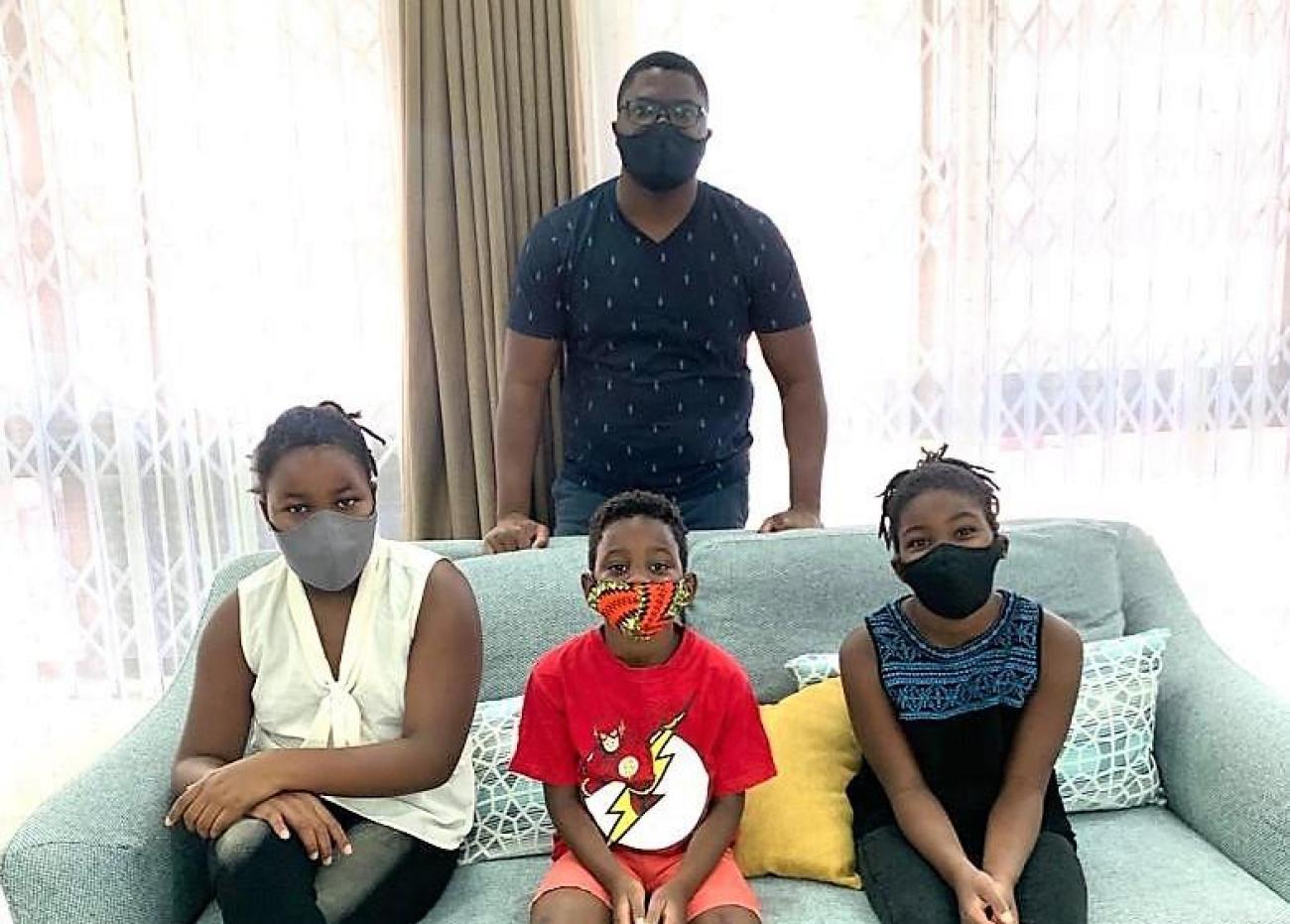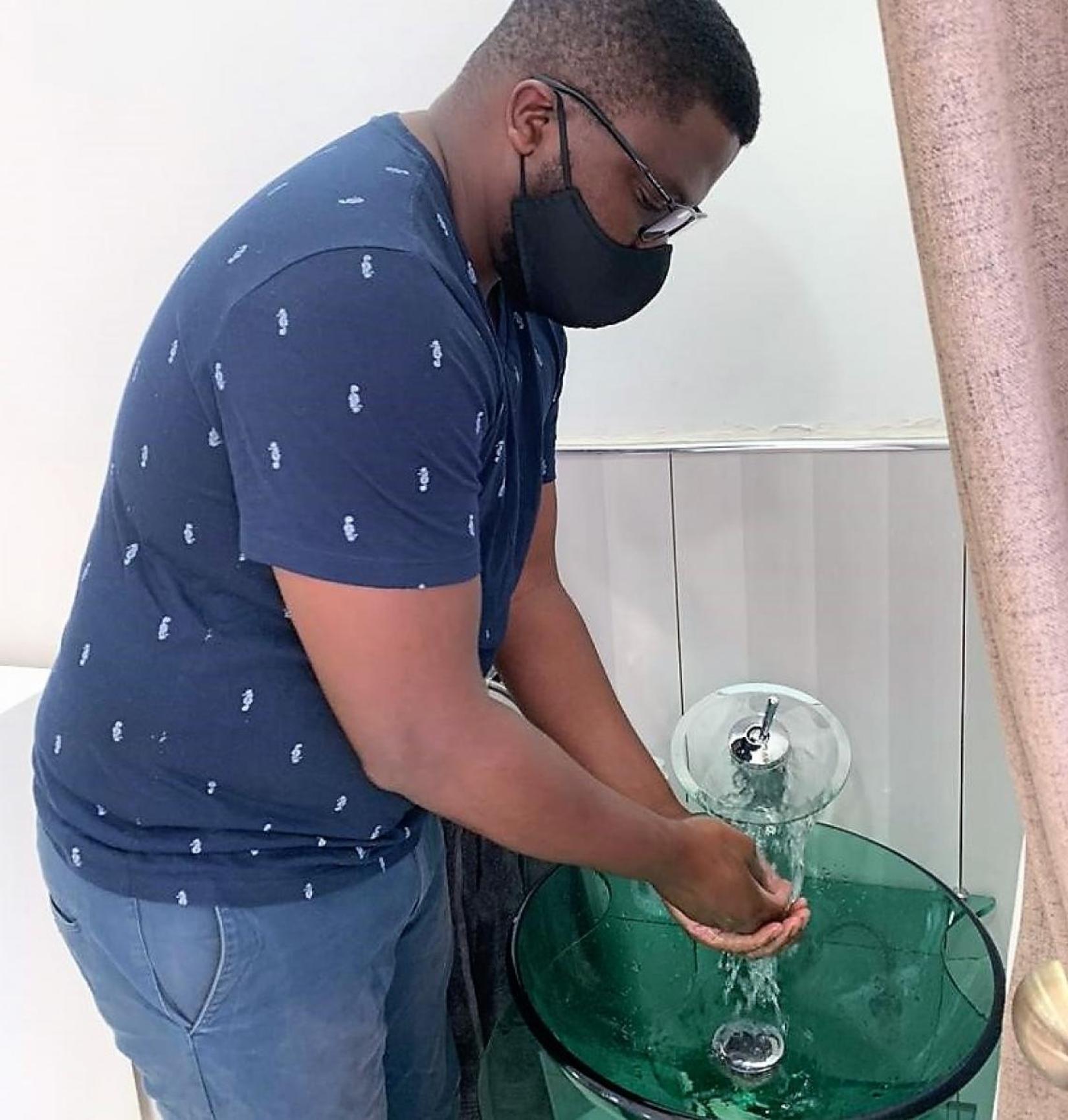I am not invincible: My battle with COVID-19

Rodrick Mhango is a 37-year-old father of three based in Lilongwe. Following his recovery from COVID-19, he wants to play a part in fighting stigma and myths.
Yes, I had the novel coronavirus disease (COVID-19), but I did not show or experience any symptoms at all. Yet, it was one of the most horrible experiences I have ever gone through. Given the rising COVID 19 deaths (some of which were very close to home), the thought that I may eventually develop symptoms and succumb to the virus crossed my mind several times – if not for my wonderful wife who was there for me throughout the battle, my children and family along with friends and colleagues who gave me support and checked on me daily, my crazy patient support group (buddies with COVID 19) who made the experience such a breeze. I also pay respect and gratitude to the healthcare workers who were readily available to support and answer my questions during this period. Without all of them, the battle against this virus would have been unbearable.
What prompted me to get tested for COVID-19
I was in contact with a close friend who tested positive and as part of contact tracing, he recommended that I should also get tested. At this point, I went into self-isolation to avoid exposing my family while waiting for the test results. My results came back positive; I had the virus but my blood oxygen level was normal. At least, I now knew what I was dealing with.
Fortunately, my wife and children all tested negative. This was such a relief to me; I could not stomach the thought of infecting them with the virus.
How I broke the news to my family.
After testing positive, I shared the news with my wife and children. I was very calm and explained the situation without panicking and assured them that I would be okay. I took time to explain to my children that I will be in isolation for some days until the virus is gone but also to protect them from being infected. My wife and I had already started talking about the pandemic in order to help them cope with the changes resulting from COVID-19. Since schools closed, we were teaching our children about positive preventative measures, talking to them about their fears and assuring them that things will get back to normal soon.
My children were very concerned because they were not able to interact with me during the isolation period, for example we would not eat together or I was unable to help them with school work. However, my wife and children would occasionally come at the door of the isolation room just to check on me and share with me any interesting developments that were taking place.

How I supported my children during this period
It is very important to remember that children look to adults for guidance on how to react to stressful events. Acknowledging some level of concern, without panicking is appropriate to manage anxiety, especially in stressful situations. During this period, I found the following tips to be useful:
- I was very calm and positive assuring my family that I would be fine.
- I spoke openly about COVID-19 with my children as a way of dealing with their fears. I responded to their questions with facts and reassurance.
- I stressed the importance of physical distancing to help them understand why they are not allowed to be close to friends and other people.
- I dispelled rumors and incorrect information about COVID-19 and the need to focus on facts.
- I provided alternative ways of engaging with the kids. I used to engage them through spellings and arithmetic games.
Measures taken
As a family we had to follow some basic hygiene and healthy lifestyle practices to ensure that the virus was dealt with and not spread. I went into self-isolation to avoid spreading the virus to my family. We also practiced all preventive measures such as regular handwashing, maintaining physical distancing, and eating balanced diet and regular exercise, etc.
The isolation period
I have been in self-isolation for a period of four weeks and throughout I did not experience any symptoms whatsoever. Often times, I had mixed feelings of boredom, loneliness, and anxiety but I did not allow this to get to my head. To cope with the struggle, I decided not to dwell on the things that I could not control, stayed positive and active as much as I could. Living through this pandemic is tough especially when we are all learning how to deal with it. We need to have compassion and patience as we go through the struggle.
Stop the COVID-19 Stigma
By now it is quite likely that you already know someone from your social circle suffering from COVID-19 or someone taking care of them or someone who recovered. However, it is deplorable that many patients are finding it difficult to quarantine themselves or cope with the diagnosis, fearing stigma and shaming. Healthcare workers have also not been spared. Many of them are facing stigma and discrimination in so many ways. Let us all play our part and stop the stigma. Show compassion and support for those affected. Viruses don’t discriminate, and neither should we.
Moving on
I am amazed at the fantastic job that healthcare workers are doing by putting their lives on the line for all of us. Their dedication and courage cannot be measured.
And for everyone, pay attention to physical distancing, wash hands frequently, sanitize, protect yourselves and wear a mask whenever in public. We all have to accept responsibility and do the right thing.
Lilongwe is one of the districts benefiting from UK Aid funding and UNICEF support on the COVID-19 response. UNICEF through UK Aid is supporting the Malawi Government with various supplies such as personal protective equipment, testing capacity, medicines, sanitizers, handwashing facilities, training of health workers among others.

